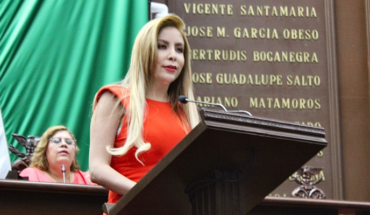
State of catastrophe, pandemic, tragedy, humanitarian disaster. These are some of the words they try to contain in their magnitude, the inarcable dimension of the harsh global reality we are going through.
As always in the face of states of catastrophe and tragedies, human costs are enormous and societies are remeiled and fragile from their base, as aside from pain and despondenment for lives lost, the hundreds of thousands of job losses and infrastructure critical to the functioning of the country add up, increasing fear , instability and uncertainty in the face of how to survive and rebuild into the future, both our lives and our society. Against this background, there is of course a need to support and contain one another, but above all, we hope that our own country, that society that we have all built over generations, will be able to give us real, concrete, solid and lasting support, so that we can reinvent ourselves and get ahead with dignity, strength and fortitude in the face of tragedies that are above the human and nothing can be done to prevent.
This has been the case as a flood, eruption or earthquake, the country rescues and supports the sectors most affected with direct aid, which are in the direction of solidarity, reconstruction and well-being for those who have lost everything. Even in unnatural catastrophes, but distinctly human, such as global financial crises, countries are responsible for quickly rescuing banking, creating “express” laws that allow it, and thus preventing financial systems from falling. In other words, in the face of catastrophes, there are funds, resources and political wills to be able to legislate, rescue, support and deliver resources to the most affected sectors.
Today, within the sectors most seriously affected by this tragedy, is the entire sector of Arts and Culture, which by its social, collective, face-to-face and living character, has had to suspend and cancel all its activities, creating a domino effect of falling in unprecedented spike, which takes with everyone equally, from the great cultural spaces to the artistic groups and collectives , going through technicians, managers, musicians, dancers, circus artists, actors, directors, etc. who have seen all their 2020 agendas crumble overnight, precipitating them to unemployment and brutal uncertainty, which is abothing even for a medium accustomed to job precariousness, lack of resources and instability.
In the face of this uncertainty, we would expect from the Government and even more so from the Ministry of Cultures, Arts and Heritage, a clear, determined and firm stance, in the direction of the rescue of the cultural sector, which not only brings knowledge, identity, reflection, imagination, creativity, ingenuity, deep emotions, mental and spiritual health to humanity, – let us not forget that WHO recently recommended countries to include arts and culture in health systems- , but also contributes to the economy (about 2.8% of GDP in Chile) and creates jobs for thousands of workers.
Many developed countries have understood this and implemented strong measures to avoid letting the cultural sector fall and safeguarding the spiritual heritage of these nations. However, in Chile, the Government and the Ministry insist on detracting from the sector’s preponderance and obscenely continue with the “Bankruptcy Funds” plan as the only way to support the sector, even though they have been strongly shown how this system is already obsolete, perpetrating inequity and, above all, does not directly solve the immediate problem required by this health urgency. If we enter into the logic of insolvency funds, only a very small percentage of the sector will benefit relatively, as not everyone will be able to access these “aids”, but those who do get them will not receive enough to solve the root of the problems left by the pandemic. Further on, it is announced that these funds will be available from August onwards, i.e. with half the year already drowning thousands of workers.
Clearly these funds are not bailouts for the sector and the Government’s position remains little hand-in-hand for the many to fight. There is no political will to create powerful solutions that go to the basis of the problems and solve not only the immediate urgency required by the pandemic, but also go once and for all in the direction of strengthening the cultural sector and dignifying its workers as they deserve; for its professionalism and contribution to the spiritual identity and imagination of the country.
Alvaro Morales and Edurne Rankin. Directors The Master Key. Members of Chilean companies at RED
The content poured into this opinion column is the sole responsibility of its author, and does not necessarily reflect the editorial line or position of El Mostrador.





